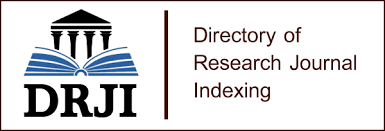TOWARDS A RECONCEPTUALIZATION OF POVERTY: IMPLICATIONS FOR ITS ERADICATION AND POLICY.
DOI:
https://doi.org/10.55327/jaash.v9i1.299Abstract
The success of any poverty alleviation strategy depends partly on how poverty is conceptualized. The overarching goal of the 2030 Agenda for Sustainable Development is “Ending poverty in all its forms everywhere” and this demonstrates the need to conceptualize poverty beyond not only monetary dimensions but also considering it as an experience and a strategy on which other peoples’ lifestyles depends on. To improve the understanding of the multi-dimensional aspects of poverty the article proposes that poverty can be grouped into three dimensions namely: moral, material and social. By restricting the access to resources by those who lack them, those with political, economic and social power exhibit moral poverty. Targeting moral poverty is the key strategy to eliminate all forms of poverty.
Downloads
Published
How to Cite
Issue
Section
License
Copyright (c) 2023 Jephias Mapuva, Emmanuel Siziba

This work is licensed under a Creative Commons Attribution 4.0 International License.
Copyrights for articles published in Journal of Asian and African Social Science and Humanities are retained by the authors, with first publication rights granted to the journal. The journal/publisher is not responsible for subsequent uses of the work. It is the author's responsibility to bring an infringement action if so desired by the author.
Articles published in Journal of Asian and African Social Science and Humanities are published under the Creative Commons Attribution (CC-BY) license, which permits others to distribute, remix, tweak, and build upon your work as long as they credit you for the original creation.
Â















